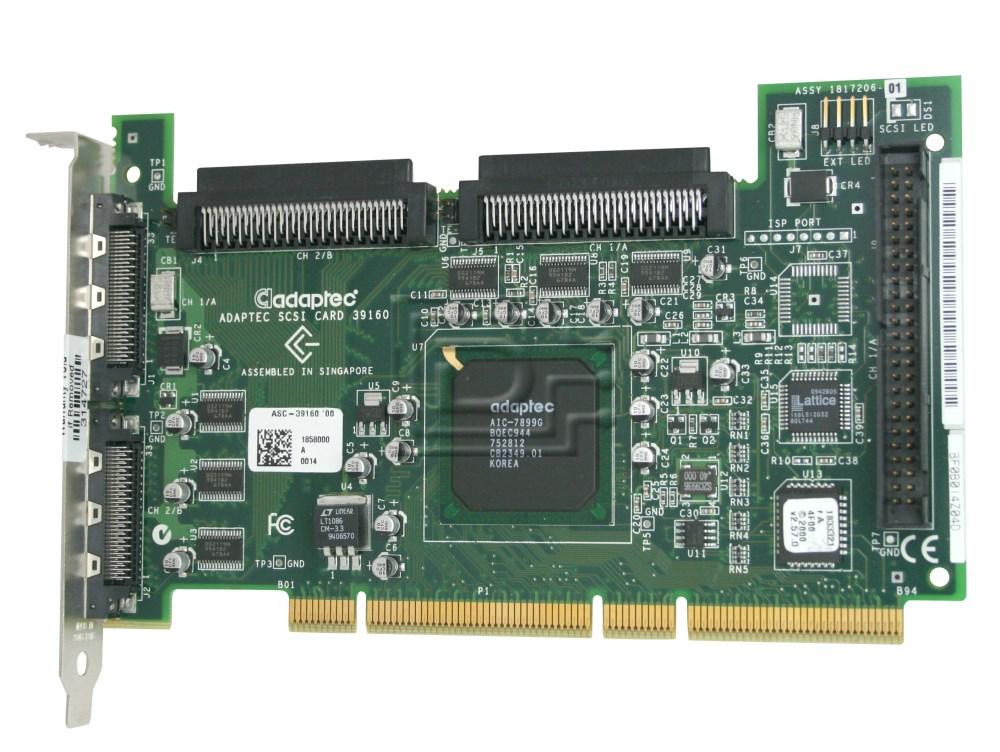I can use the “smartctl -d ata -a /dev/sdb” command to read hard disk health status directly connected to my system. But, how do I read smartctl command to check SAS or SCSI disk behind Adaptec RAID controller from the shell prompt on Linux operating system? The Adaptec USBXchange product is a USB-to-SCSI adapter that makes it fast and easy to connect your SCSI devices with the newest portable and desktop Mac and PC systems. Its easy plug-n-play connectivity and set-up gives you the power to connect SCSI peripherals to USB ports in a matter of seconds. Adaptec SCSI RAID 2005S » Adaptec SCSI RAID 2010S » Adaptec SCSI RAID 2015S » Adaptec SCSI RAID 2020ZCR » Adaptec SCSI RAID 2025ZCR » Adaptec SCSI RAID 2100S » Adaptec SCSI RAID 2110S » Adaptec SCSI RAID 2120S » Adaptec SCSI RAID 2130SLP » Adaptec SCSI RAID 2200S » Adaptec SCSI RAID 2230SLP » Adaptec SCSI RAID 3200S » Adaptec SCSI.

The drivers for the Adaptec SCSI Cards 2902, 2904, and 2906 are already embedded within Windows 2000, and XP. Windows should automatically detect and install the proper driver for the controller. Once the driver is installed, there is nothing more that you need to do for the controller.
The SCSI Card description in Device Manager for the controller will be displayed as an AIC-7850, which is the chipset that is used on the controller.There are and will be no Windows Server 2003 drivers available for the Adaptec SCSI Cards 2902, 2904, and 2906.
The controller cards are supported in Windows Vista, Server 2008, and Windows 7 but with the 32 bit Operating System versions only, there are and will be no drivers for the 64 bit Editions of Vista, Windows 7, Server 2008, and Server 2008 R2. The 32 bit drivers are available for download from our Support Site.
You can verify that the drivers has installed properly by going to Device Manager (right click My Computer and select Manage, then select Device Manager from the list) selecting the SCSI and RAID controller category and making sure the controller is shown without indications of problems.
Note: With SCSI devices attached to the card, please verify that the software application supporting the device (like CDR software, scanner software, backup software, etc) also supports the operating system that you are intending to use.
The SCSI Controller BIOS can be disabled within the SCSI BIOS, via the SCSISelect feature on the SCSI controller.
During the system boot process, you will see the Adaptec BIOS and a prompt to press Ctrl-A to go inside SCSISelect.
Adaptec Array Scsi Disk Device
Once inside the SCSISelect utility:Adaptec Scsi Card Drivers
- Choose the SCSI controller you want to disable the BIOS on and press enter.
- Choose Configure / View SCSI Controller Settings and press enter.
- Choose Advanced Configuration inside Additional Options area below.
- Select SCSI Controller Int 13 Support. This option controls the state of the BIOS at POST time. The following settings are available:
Enabled - Supports INT 13 for booting from a SCSI hard disk drive connected to the SCSI card. If you use this option, the following options are available:
- Extended INT 13 Translation for DOS Drives > 1 GB
- Support Removable Disks Under INT 13 as Fixed Disks
- BIOS Support for Bootable CD-ROM
Disabled:NOT Scan - select this option if all the devices on the SCSI bus are controlled by software drivers and do not need the BIOS, and you do not want the BIOS to scan the SCSI bus. SCSISelect remains available if needed.
Disabled:Scan Bus - select this option if all the devices on the SCSI bus are controlled by software drivers and you need the BIOS to scan the SCSI bus. Allows devices to spin up according to the setting of the Send Start Unit Command. SCSISelect remains available if needed.
Note: Once you have changed the BIOS settings, press 'Esc' twice and it will prompt you to save the changes. Press 'Esc' again to exit and then restart the system.

